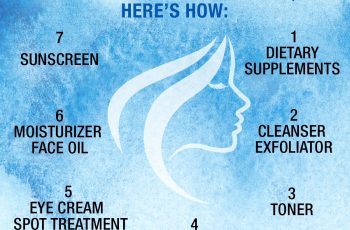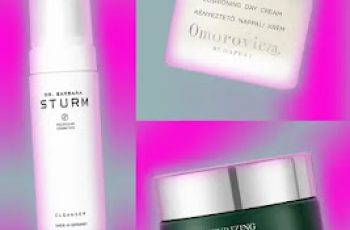Bisabolol in Skin Care Products
Bisabolol in skin care
Bisabolol is a soothing anti-inflammatory skincare ingredient that contains panthenol. It is also called α-bisabolol or levomenol, This terpene comes from various plants such as chamomile, cannabis and the candeia tree.
It also helps other skin care products absorb better when they are layered together. (4)
Bisabolol in skin care
Benefits
What does bisablol do for the skin?
Bisabolol is:
anti-inflammatory
antimicrobial
moisturizing
a humectant
penetration enhancer
Bisabolol is often used in skin care products for sensitive skin and is one of the best skincare ingredients for redness and rosacea.
The chamomile plant is a common source of natural bisabolol
5 best skin care products with bisabolol:
Essopi Triple Antioxidant Serum
Essopi Triple Antioxidant Cream
Replenix Redness Reducing Triple AOX Serum
Revision Skincare Firming Night Treatment
SkinCeuticals Redness Neutralizer
Is bisabolol good for the skin?
Is Bisabolol good for the face?
Bisabolol works well to treat many skin consitions and is often used to treat sensitive skin. It is one of the most commonly used anti-redness ingredients.
It can be used to soothe skin on the face
It is usually combined with other anti-redness ingredients.
Shop by your skin type to find the right bisabolol face products for your skin.
Take the Quiz
Anti-inflammatory Benefits of Bisabolol
Acne- Helps get rid of the redness from pimples, papules and pustules and make the red marks from acne go away faster.
Sensitive Skin- Found in many anti-inflammatory skincare products intended to soothe and calm skin.
Rosacea- Helps prevent and treat facial redness.
Eczema- When combined with barrier repair moisturizers will help sooth eczema prone skin.
Psoriasis- Helps calm and soothe itchy skin from psoriasis.
Bisabolol for dark spots
Skin Lightening
Bisabolol has been shown to have a weak skin lightening effect but is not as strong as other skin lightening ingredients.
By soothing inflammation it may help prevent some hyperpigmentation.
We recommend combining bisabolol with other types of skin lightening ingredients for best results such as:
PAR-2 Blockers
Tyrosinase inhibitors
Retinoids
Also make sure the moisturizers in your skin care routine have unsaturated fatty acids.
Learn more about skin care routines to treat hyperpigmentation here.
Or take the quiz and we will tell you which medical grade products and brands are best for you to use.
Side Effects
Bisabolol has been shown to cause a skin allergy in susceptible people. It is a component of chamomile so anyone allergic to the Compositae family of plants is more likely to get a rash from bisabolol.
When to avoid using bisabolol in skin care products
Bisabolol comes from the Asteraceae (or Compositae) family of plants. It’s one of the largest families of flowering plants, and individuals who are allergic to one member of this family, such as ragweed, may potentially react to other members due to cross-reactivity. This is not always the case for everyone, but it’s worth being aware of the possibility.
If you have a ragweed allergy, you might react to other plants in the Asteraceae family. Some of these include:
Ragweed itself, which has various species like common ragweed (Ambrosia artemisiifolia) and giant ragweed (Ambrosia trifida).
Chamomile – even the tea may bother you
Echinacea – often used in supplements and teas to boost the immune system.
Chrysanthemums – a common flowering plant.
Marigolds- the extract is in skin care products
Dandelions.
Sunflowers – This includes sunflower seeds and sunflower oil, although the oil rarely causes reactions since it usually lacks the protein that triggers the allergy.
Tansy.
Wormwood or artemisia – which is used to make absinthe.
Lettuce.
Endive.
Sagebrush.
Dahlias.
Goldenrod.
Additionally, it’s not just direct contact or ingestion that can cause problems. In some cases, inhaling the pollen from these plants can trigger allergic reactions.
Bisabolol structure
Is bisabolol toxic?
No Bisabolol is not toxic.
Bisabolol is considered a clean ingredient.
It is rated 1-2 by the EWG.
DQH Knowledge drop: In your 20s, your skin cell turnover decreases. (Cell turnover is a key component in keeping your skin youthful.) You know what else slows down? Your collagen production. Starting in your 20s, collagen decreases by about 1 percent per year. Should you want to prevent fine lines and wrinkles, start by eliminating behaviors that contribute to premature aging. “If it’s bad for you, it’s bad for your skin,” says dermatologist Michel Somenek.
“Cigarette smoking reduces blood flow to the skin and causes premature wrinkling and a dull skin texture. Making the repeated pursed motion to inhale can also cause smoker’s lines. Alcohol and recreational drugs are toxins for the skin that damage its cellular structure and DNA,” Somenek tells us. “The faster you eliminate vices while you are young, the better chance your skin and body have to recuperate.” Also, adopting an anti-aging routine in your 20s is key. After all, the best offense is a good defense. We spoke to Somenek and experts Joshua Ross and Audrey Kunin to find out more.
Keep reading for the best anti-aging products for your 20s, according to skincare professionals.
Sunscreen
“We all know that the sun is the number one cause of skin aging and starting the prevention in your 20s is very important,” Ross says. “The majority of your sun damage won’t start to appear until you’re in your 30s, so don’t wait until you see it surface or you’ll be behind the curve. Stay ahead of it with a good-quality zinc-based sunscreen worn daily.”
Farmacy Green Defense Daily Mineral Sunscreen
An invisible sunscreen with SPF 30, plus botanical extracts meant to protect skin with tons of antioxidants. Bonus: It’s clean and fine to use under makeup.
Bareminerals Complexion Rescue™ Tinted Moisturizer Broad Spectrum SPF 30
Although we recommend you use your SPF and moisturizer separately, we also understand moments when you don’t have time or energy for that extra step. For those times, this bareMinerals moisturizer is a great thing to have on hand.
Vitamin C Serum
“A great introduction to anti-aging is to start with a vitamin C serum in your morning skincare routine,” Ross says. “It’s a powerful antioxidant that will neutralize free radicals and brighten the skin.” He adds that it’s a great way to counteract the effects of the sun’s harmful rays, which, as previously mentioned, are among the biggest causes of premature aging.
Drunk Elephant C-Firma™ Vitamin C Day Serum
The Drunk Elephant C-Firma is a lightweight serum that promises to give skin a glow by combining the brightening powers of vitamin C with ferulic acid, l-ascorbic acid, and vitamin E. The included sodium hyaluronate is meant to replace hydration loss, so you shouldn’t have to deal with any irritation.
Sunday Riley C.E.O. Rapid Flash Brightening Serum
This potent serum is jam-packed with vitamin C (15 percent, to be exact), which means it’s a potential superstar at both brightening skin and dousing it in antioxidants.
Peptides
Using peptides on your skin has many benefits, says Somenek. “The skin barrier is what defends the body against pollution, UV rays, bacteria, and toxins. It can be damaged by several everyday factors. Using topical peptides aids in building a stronger barrier,” he says. “Peptides comprise elastic fibers, which are a type of protein. These fibers help to make skin appear taut and firm. Peptides can also help repair damaged skin, relieve inflammation, and even out skin tone. Some peptides can kill acne-causing bacteria that is common in 20-somethings.”
Kunin agrees, saying, “Peptides are an excellent entry point for supporting collagen.” She recommends looking for face and eye treatments that contain these collagen-boosting powerhouses.
Charlotte Tilbury Magic Eye Rescue Cream
This Charlotte Tilbury super-emollient eye cream has a base of coconut oil and shea butter (read: it’s incredibly hydrating). Botanicals plus peptides are meant to help reduce dark circles and boost collagen, respectively.
This creamy moisturizer serves up potent collagen-boosting peptides and pycnogenol, and antioxidant-rich vitamin C. “Instead of sitting on top of the skin, peptides penetrate the outer layer so they go deep. The ‘signals’ they send tell the cells to produce elastin and collagen, which are needed for youthful-looking skin,” explains Somenek.
At-Home Peel Pads
Remember that skin cell turnover fiasco we talked about earlier? One way to help support it is by exfoliating. “Exfoliation is important to help keep skin fresh and luminous,” Kunin says. She recommends using at-home peel pads as an easy and effective way to exfoliate.
“The goal in your 20s is to fight the slowing pace of cell turnover. It is wise to use products that gently exfoliate, yet still remove oil and other impurities. Products that have Alpha Hydroxy Acids (AHA) or Beta Hydroxy Acids (BHA) are a good choice.”
According to Somenek, you should only exfoliate two to three times a week. “People of all ages are guilty of over-exfoliating and that can be too much of a good thing,” he says.
Dermadoctor Kakadu C Intensive Vitamin C Peel Pad
A few swipes of this Derma Doctor powerful peel pad promise to leave your skin glowing and smooth, thanks to the seven (yes, seven) types of chemical exfoliants, including AHA and BHA. It also contains vitamin C via Kakadu plum extract for added brightening and antioxidant protection.
KEY INGREDIENTS Kakadu plum extract is sourced from the Kakadu plum, a fruit grown in northern Australia. It contains vitamin C, which restores the skin’s natural barrier, increases collagen production, and soothes irritation.
Dr. Dennis Gross Skincare Alpha Beta® Universal Daily Peel Pads
These are the gold standard of peel pads, with a cult following and over 900 five-star reviews on Sephora. They’re easy to use and contain a blend of anti-aging exfoliating acids.
Emollient Night Cream
“In your 20s, you need to start upping the hydration in your skincare routine. You may have been cautious of over-moisturizing because of acne in your teens, but as you enter your 20s, your skin transitions and becomes drier,” Ross says. “I recommend an emollient night cream added into your evening skincare regimen.”
“Twenty-somethings need to make sure that they are not using creams that will clog their pores and cause excess oil production,” says Somenek. Opt for non-comedogenic products.
Cerave Skin Renewing Night Cream
One great choice is the CeraVe Skin Renewing Night Cream, which is a non-comedogenic night cream that leaves skin soft and glowy. It combines the moisturizing powers of ceramides and hyaluronic acid.
RoC Retinol Correxion Max Hydration Creme
“The best night cream ingredients contain retinol, benzoyl peroxide, and/or salicylic acid or hyaluronic acid. The goal is to moisturize, yet remove excess oil,” says Somenek. This Roc Retinol Correxion cream fits the bill as it contains both hyaluronic acid and retinol so it promises to moisturize while also being non-comedogenic.



